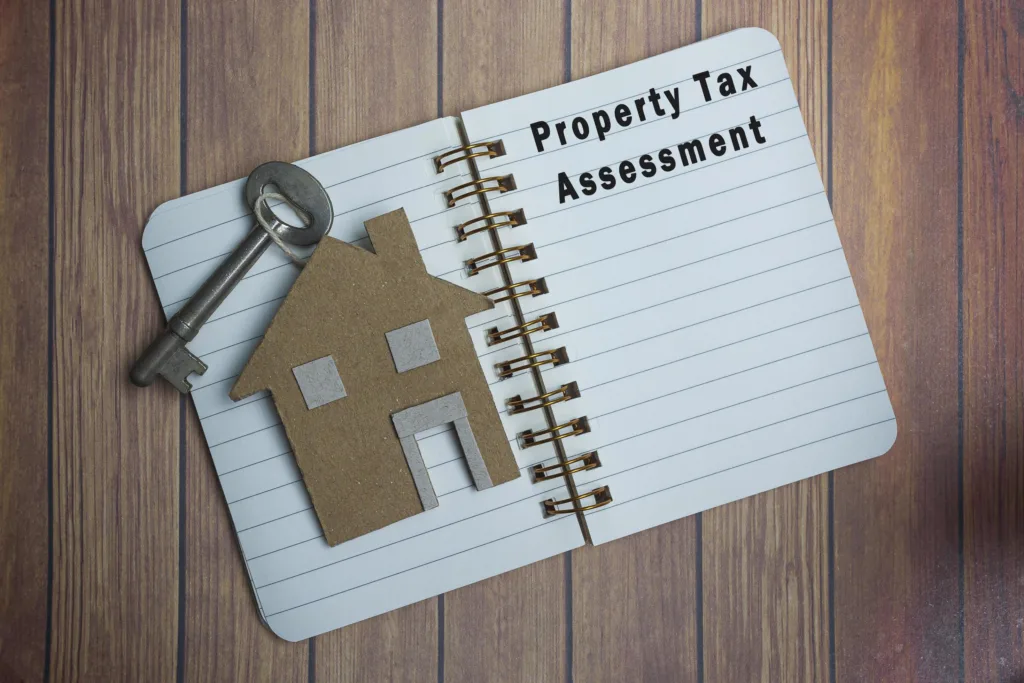The Ultimate Guide to Property Taxes Owning a home is a dream for many, but with that dream comes the responsibility of understanding and managing property taxes. Navigating the intricate world of property taxes can be a daunting task, but fear not! The Ultimate Guide to Property Taxes is here to demystify the complexities and empower you with the knowledge needed to make informed decisions about your property.
1. Understanding Property Taxes:
Property taxes are a vital source of revenue for local governments, funding essential services like schools, public safety, and infrastructure. They are typically based on the assessed value of your property and vary widely across different locations.

2. Factors Influencing Property Taxes:
Several factors contribute to the determination of property taxes, including:
- Assessed Value: The value assigned to your property by local tax assessors.
- Tax Rates: The percentage of the assessed value used to calculate your property tax.
- Exemptions and Deductions: Certain conditions or exemptions may reduce your tax liability.
3. Calculating Property Taxes:
Let’s break down the calculation:
Property Tax=Assessed Value×(100Tax Rate)
Example Table:
| Assessed Value | Tax Rate | Property Tax |
|---|---|---|
| $200,000 | 1.2% | $2,400 |
| $350,000 | 1.2% | $4,200 |
| $500,000 | 1.2% | $6,000 |
4. Common Property Tax Deductions:

These deductions can help ease the burden of property taxes for different groups of homeowners:
A. Mortgage Interest Deduction
The Mortgage Interest Deduction is a financial lifeline for homeowners. It allows you to deduct the interest paid on your mortgage loan from your taxable income. This deduction is particularly beneficial in the early years of your mortgage when interest payments are higher. By reducing your taxable income, you effectively lower your overall tax liability.
Pro Tip: Keep detailed records of your mortgage interest payments, as this deduction can significantly impact your tax savings.
B. Homeowners’ Exemption
The Homeowners’ Exemption is a local tax relief program that offers a reduction in your property’s assessed value, ultimately leading to lower property taxes. To qualify for this exemption, you generally need to prove that the property is your primary residence. This exemption is a valuable tool for reducing the financial strain of property ownership.
“The Homeowners’ Exemption is a helping hand for those who proudly call their house a home.”
C. Senior Citizens Exemption
As a nod to those in their golden years, many jurisdictions provide a Senior Citizens Exemption. This program offers additional relief to qualifying senior citizens, typically aged 65 or older. The exemption may take various forms, such as a reduction in assessed value or a freeze on property tax rates. It recognizes the financial challenges that seniors may face in retirement and aims to make homeownership more sustainable for this demographic.
Statistical Insight: Over 40% of U.S. states offer some form of property tax relief specifically tailored for senior citizens.
Incorporating these deductions into your property tax strategy can lead to substantial savings. However, it’s crucial to stay informed about the specific eligibility criteria and requirements for each deduction in your local jurisdiction. By taking advantage of these opportunities, you not only reduce your immediate tax burden but also contribute to the overall financial wellness of your household. The Ultimate Guide to Property Taxes.
5. Managing Property Tax Assessments:

Owning a home isn’t just about enjoying your living space; it’s also about being vigilant in managing your property tax assessments. Here are three key strategies to ensure you stay ahead of the game:
A. Regularly Review Assessment Notices:
Don’t let assessment notices gather dust. Regularly review these documents to ensure the assessed value of your property aligns with its market value. Assessments can change, affecting your property taxes. By staying informed, you can catch discrepancies early on and address them before they impact your financial bottom line.
Pro Tip: Set a calendar reminder to check assessment notices annually, typically when they are issued by local tax authorities.
B. Document Any Improvements or Damages:
Homeownership often involves improvements and occasional damages. Keep a meticulous record of any upgrades, renovations, or damages to your property. These records serve as essential documentation when it comes time for a reassessment. Improvements may increase your property’s value, but damages could have the opposite effect. Either way, accurate documentation is your ally in the assessment process.
“Your home is an evolving asset; documenting its changes ensures fair taxation and protects your investment.”
C. Understand the Appeal Process:
Knowledge is power, especially when it comes to understanding the appeal process. If you believe your property has been overvalued or if you’ve encountered an unexpected increase in your property taxes, know how to navigate the appeal procedure. This may involve gathering evidence, filing the appeal within a specified timeframe, and presenting your case to the local tax authorities.
Statistical Insight: According to recent data, successful property tax appeals result in an average reduction of 10-20% in the assessed value of the property.
Being proactive in managing your property tax assessments isn’t just a financial strategy; it’s a homeowner’s responsibility. By staying vigilant, documenting changes, and understanding the appeal process, you take control of your property tax destiny. Ultimately, a well-informed approach to property tax management ensures that you’re not only investing in your home but also in the long-term financial health of your household.
6. Appealing Property Tax Assessments:
If you believe your property has been overvalued, follow these steps:
- Gather evidence: Collect relevant information to support your case.
- File an appeal: Follow the local procedures for filing an appeal.
- Present your case: Clearly articulate your reasons for the appeal.
7. The Future of Property Taxes:
Stay informed about potential changes in property tax laws and policies, as they can impact your financial planning.
Statistic: According to a recent survey, property taxes have increased by an average of 5% annually over the past decade.
8. Tips for Smart Property Tax Planning:

A. Research Local Tax Rates Before Purchasing a Property:
Before making a significant investment in real estate, it’s crucial to thoroughly research the local tax rates in the area. Property taxes can vary widely from one location to another, impacting your overall cost of homeownership. Understanding the tax structure will help you make informed decisions about which property aligns with your financial goals.
B. Explore Tax Incentives for Energy-Efficient Improvements:
Take advantage of potential tax incentives and credits by investing in energy-efficient improvements for your property. Many governments offer tax breaks for initiatives such as solar panels, energy-efficient windows, and insulation. By making environmentally conscious choices, you not only contribute to sustainability but also benefit from reduced tax burdens, making your property ownership more cost-effective in the long run. The Ultimate Guide to Property Taxes.
C. Regularly Reassess Your Property’s Value:
Property values can fluctuate over time due to various factors such as market trends, neighborhood development, and property improvements. Regularly reassessing your property’s value allows you to stay informed about its current worth. This knowledge is valuable for property tax purposes and can also be beneficial if you decide to sell or refinance in the future. Stay proactive in understanding the market dynamics that influence your property’s value to make informed financial decisions. The Ultimate Guide to Property Taxes.
The Ultimate Guide to Property Taxes
Conclusion:
Navigating the world of property taxes requires knowledge, vigilance, and strategic planning. By understanding the factors influencing property taxes, utilizing deductions, and staying proactive in managing assessments, you can take control of your financial destiny. Remember, the key to financial wisdom is continuous learning and informed decision-making. Happy homeownership! The Ultimate Guide to Property Taxes.
Read Previous Article : How to Stay Organized for Tax Season 2023
